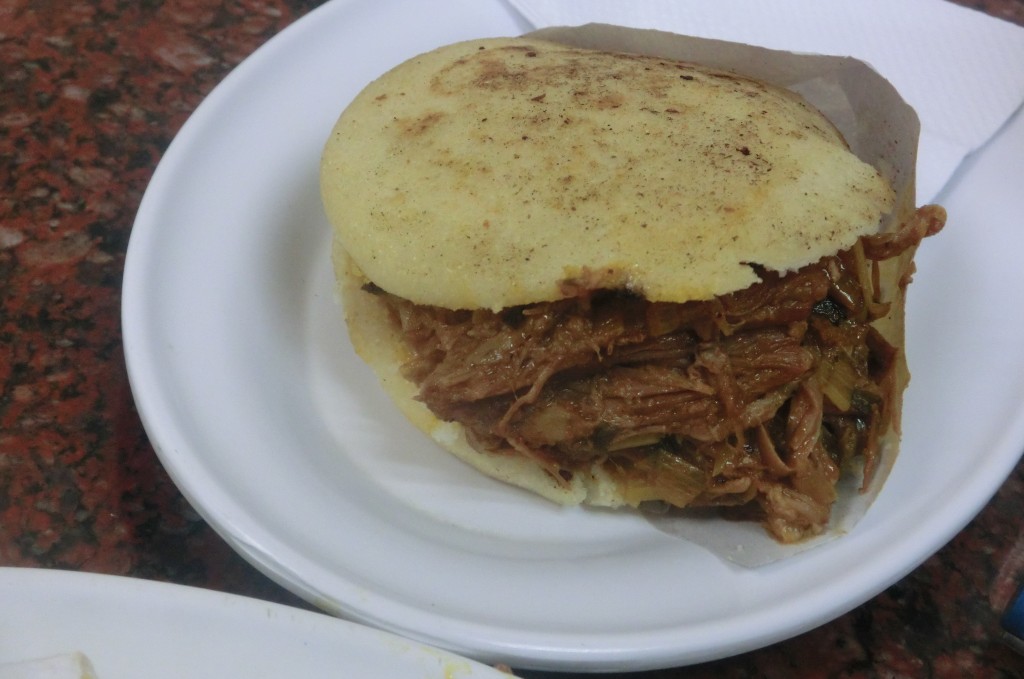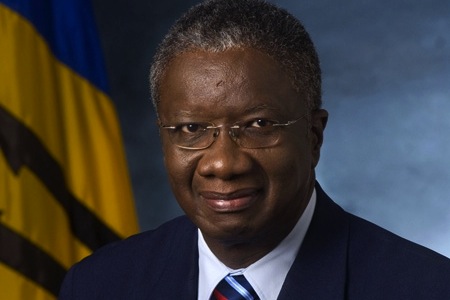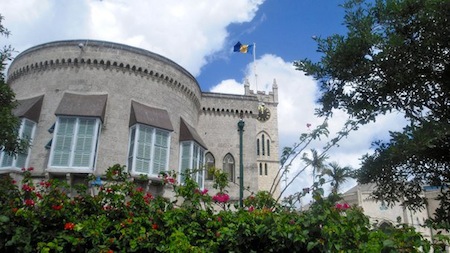CARACAS, Venezuela — I’ve basically had one meal since I’ve arrived in Venezuela, and in the spirit that the local cuisine is going to be the tastiest cuisine, I made my first meal arepas (pictured above), a ubiquitous cornmeal disk (some are more pancake-esque, others biscuit-esque) filled in this case with beef.![]()
It’s not that I want to throw shade on Venezuela in particular, but it’s stunning to me just how unhealthy food is in Central America and in the Caribbean — when you think about the tropical climate that the region features, you’d think it could be one of the world’s most amazing food traditions — think fresh fishes complimented by fruit-based salsas and the kind of salads that put health-conscious Californians to shame.
But the reality is a lot of fried food, heavy fare that seems somehow out-of-place in such a hot and humid climate, and I find that to be true throughout the region.
In Nicaragua, they’ve turned fried pork rinds (chicharrón) into a main dish. El Salvador’s contribution is the pupusa, a kind of cheese-filled corn disk. In Puerto Rico, the most well-known dish is mofongo, fried plantains that are mashed together (see below). Ubiquitous starchy fried plantain chips (patacones or tostones) are never hard to find.
Throughout the Caribbean islands, fresh fish is routinely fried up (though sometimes mercifully grilled), and served with any number of heavy, starchy sides — in Barbados, ‘pie’ — what Americans know as macaroni and cheese — and french fries are a standard side dish. It’s not uncommon on the Colombian coast for a typical meal to include fried fish, rice or some other starchy dish, and some sort of fried plantain.
Here in Venezuela, I also have to look forward to tequeños, a tight coil of fried white bread filled with white cheese, and I passed a stand earlier for cachapas, a kind of corn pancake.
Moreover, this region in particular has taken a liking to norteamericano-style fast food. Guatemalans are so taken with fried chicken that a flight from Guatemala City to the States isn’t a flight without the smell wafting through the boxes of furtively (and not-so-furtively) obtained chicken from the home-grown chain, Pollo Campero (see below).
But why did the food culture of the Caribbean basin develop in this fashion, and what does it mean for the region’s future? Continue reading A diatribe against arepas — and food policy in the Caribbean basin





